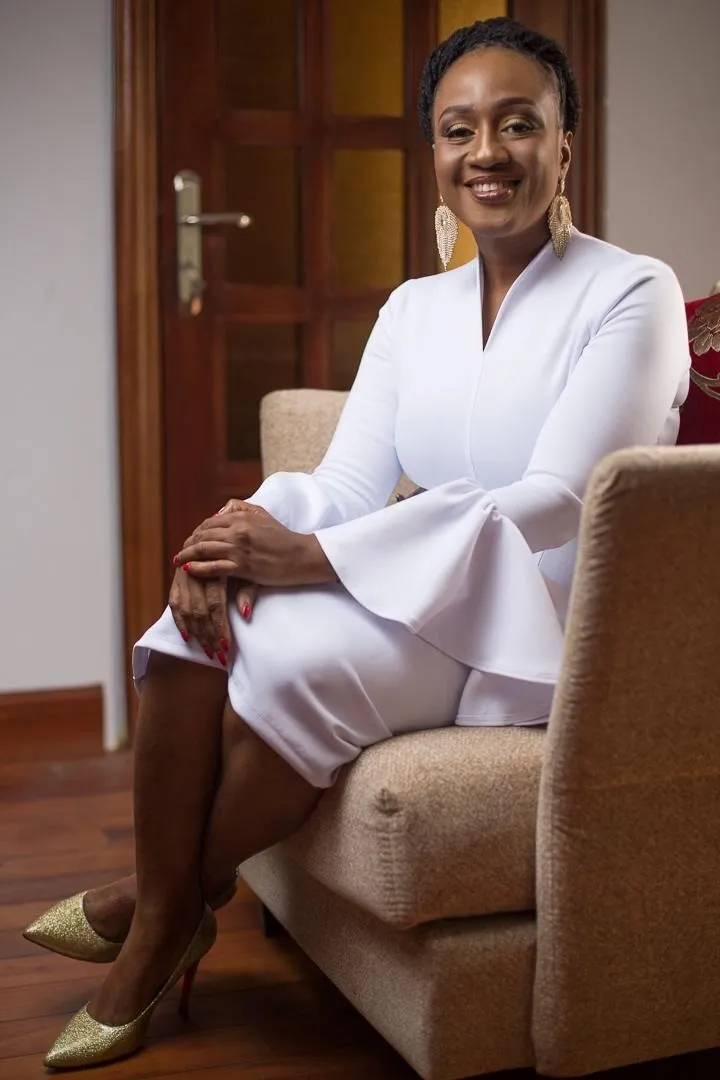Copyright thebftonline

They say you don’t truly fail, you learn. While that sentiment is motivational, it lacks the necessary rigour for a business leader to succeed. Learning is passive; true resilience is an asset that must be actively managed. Over the course of my career, which has included ventures in banking, high-end consulting, events, and even the beautiful chaos of the wellness and beauty sector with Allure, I have experienced both soaring success and catastrophic operational failure. Some businesses soared, others stumbled, and a few nearly broke me. Yet, through every single high and low, one powerful truth became my constant: Businesses may fail, but your skills do not. Entrepreneurship is often framed as a journey of constant reinvention, where a leader sheds their past life to chase a new trend. This is the Myth of the Fresh Start. The reality is that your core competence, what you know, what you practice, and what you have refined under pressure, becomes the strategic bridge that carries you from one successful chapter to the next. What you build is temporary. Who you are and what you can do are permanent. Distinguishing Between Loss and Asset The market will test your idea, your funding, and you’re timing. But your core skills are what keep you standing when those external forces collapse. They are your anchor. I began my journey immersed in the fundamentals of banking and strategy consulting. That early foundation of performance management, financial scrutiny, and deep problem-solving became the intellectual safety net that allowed me to take subsequent entrepreneurial leaps. When Allure was scaling, we relied not just on passion, but on strategic frameworks to manage cash flow and sustain team performance. When market setbacks forced a pivot, I didn’t start from zero. I returned to my anchor: my ability to advise, problem-solve, and restructure complex systems. A Framework for Core Competence In a world driven by rapid innovation, it’s tempting to equate success with novelty. But innovation without competence is like speed without direction – it moves fast but not far. Core skills are the true equity of a leader. They transcend industries, survive economic downturns, and sustain leaders when markets shift. At DCG, we define Core Skills as: Strategic Thinking – Seeing beyond the obvious, connecting today’s choices to tomorrow’s impact. People Leadership – Inspiring trust, managing talent, and nurturing collaboration under pressure. Problem-Solving & Decision-Making – Turning complexity into clarity. Financial & Commercial Acumen – Understanding how value is created, measured, and maintained. Emotional Intelligence – The ability to lead with awareness, empathy, and courage. Research supports this. The World Economic Forum’s 2025 Future of Jobs Report highlights adaptability, problem-solving, and communication as the top global skills driving success in the next decade. These are not tied to an industry; they’re the DNA of resilient leadership. Skills Outlast Trends: The Intentional Investment Executives are often paid to chase the future. We must seize new technologies and capitalise on emerging market opportunities. But remember: trends are ephemeral; competence is enduring. A business concept can lose relevance overnight, but the competence required to analyse markets or lead diverse teams remains a high-demand asset. This is why a 2023 LinkedIn report found that global in-demand skills were overwhelmingly based on leadership, communication, and analytical thinking. In the wellness industry, consumer trends shift constantly. Yet, the ability to build a strategy, manage my team, and connect with people, the skills I stress-tested in consulting, were permanent. They allowed me to confidently transfer value to new sectors when Allure’s moment ended. The Lesson: If skills are your safety net, you must treat them like a billion-dollar asset to be maintained. A safety net left unattended frays. Actionable Strategy: The 4 Disciplines of Asset Management Refining your core competence is not passive study; it is an active discipline that demands commitment. I’ve found that what once took a decade to build in my early career, I can now accelerate in a quarter at DCG Consulting Group because the skills are sharper. Here are four disciplines to strengthen your strategic asset today: Intentional Reskilling & Horizon Scanning Commit to continuous exposure. The World Economic Forum estimates that half of all employees will need reskilling by 2025. As a leader, your curiosity is a form of protection against corporate irrelevance. What is one concept (AI, Sustainability, Geopolitics) you will master this month? Cross-Contextual Stress-Testing Your skills grow sharper when tested outside your comfort zone. Engage in cross-industry mentoring, serve on a non-profit board, or run a small, low-risk side project. Each new challenge deliberately stretches the safety net, expanding your capacity for adaptability. Competence Reinforcement through Generosity When you teach or mentor, you clarify and strengthen your own mastery. Articulating a complex concept (like ‘Intentional Leadership’) forces you to own the material deeply. Give away your best knowledge; the act of teaching is the ultimate form of self-refinement. The Post-Mortem Audit (Learning from Loss) After every major outcome, whether a celebrated success or a painful failure, conduct a structured self-audit. Ask yourself: “Which core skill carried me through this, and which one failed me?” This habit turns raw, emotional experience into structured, repeatable learning, ensuring no lesson (or failure) is ever wasted. Your Future is Built on Your Foundation Failure in entrepreneurship is not a final verdict; it is formative feedback. Studies show that executives who interpret failure as a learning opportunity are significantly more likely to succeed in subsequent ventures. This is because they do not lose faith in themselves; they simply audit the system and apply stronger competence next time. Resilience is not merely persistence. It is the ability to leverage the non-negotiable skills you already possess to pivot, rebuild, and rise again with strategic velocity. Entrepreneurs and executives, hear me clearly: Your ventures may fail, but your skills will not. Do not abandon your core competence. Invest in it. Refine it. Teach it. Because when the business landscape inevitably shifts, your command of those fundamental assets will be your safety net, your anchor, and the accelerant for your next growth chapter. Thought Starter: Looking at your last significant business challenge, which of the core competencies would you rate as your weakest asset, and what is your 90-day plan to sharpen it? Are you ready for TRANSFORMATION? Dzigbordi Kwaku-Dosoo is a Ghanaian multi-disciplinary Business Leader, Entrepreneur, Consultant, Certified High-Performance Coach (CHPC™) and global Speaker. She is the Founder and CEO of The DCG Consulting Group. She is the trusted coach to top executives, managers, teams, and entrepreneurs helping them reach their highest level of performance through the integration of technical skills with human (soft)skills for personal development and professional growth, a recipe for success she has perfected over the years. Her coaching, seminars and training has helped many organizations and individuals to transform their image and impact, elevate their engagement and establish networks leading to improved and inspired teams, growth and productivity.



